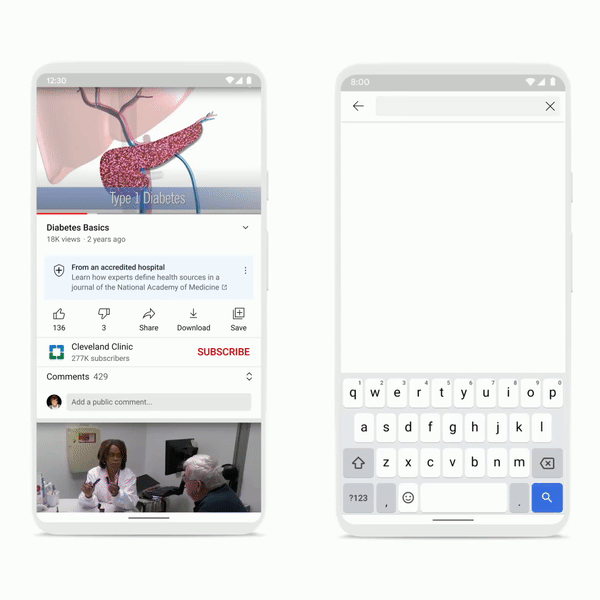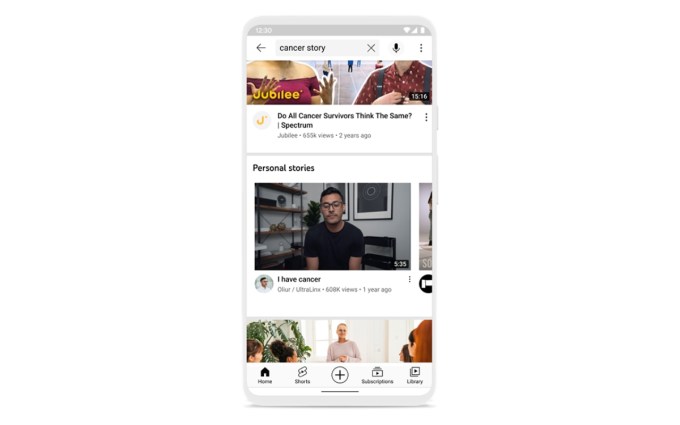YouTube announced today that it will certify channels of licensed health professionals like doctors, nurses, or therapists who produce health-related content. Last year, the company introduced a label noting that the info on the channel is from a certified healthcare professional. Plus, it showed videos from these approved channels in a new carousel called “From health sources” that shows up atop search results.
While these features were available to select institutions like educational institutions, public health departments, hospitals, and government entities at launch, the company is now expanding the program and inviting U.S-based health creators to apply for this program.

Image Credits: YouTube
YouTube follows guidelines set by the Council of Medical Specialty Societies, the National Academy of Medicine and the World Health Organization to build a framework around credible sources for health-related content on the platform. All institutions and health-related creators need to follow these rules while making videos on YouTube.
The streaming platform has set a bunch of requirements for creators applying for this certification: they should primarily have health content on the channel; they must have more than 2,000 watch hours of public videos in the last 12 months; and they must attest that they are a licensed doctor, nurse or mental health professional.
YouTube will review the channel against its guidelines and it will also check with authorities to verify that applicants have a valid medical license. Once the channels are approved, they will get a special label noting them as “a licensed healthcare professional” resource, and their videos will also surface on health content shelves on top of related search results. YouTube said that this covers search results in most conditions apart from rare diseases (it didn’t specify which ones).
The caveat is that if a creator makes a video that’s not directly related to healthcare, the channel still retains the label and the video might also show up on the health content shelf if the creator uses keywords related to a medical condition.
In a call with TechCrunch, Dr. Garth Graham, Global Head of YouTube Health, said that the onus of making health-related videos lies on the creator. However, the company doesn’t provide any toggle if they want to demark an unrelated video.
Notably, YouTube launched a program last month that surfaces personal stories from patients or their relatives in a separate panel when users search for ailments cancer, and mental health conditions like anxiety and depression. But there is a chance that a health creator’s personal story might show up in the health resources panel rather than the personal stories panel.

Image Credits: YouTube
There is also a concern about certified health-related channels spreading misinformation. Dr. Graham insisted that the company uses a combination of processes (AI) and people (reviewers) to measure them against YouTube’s guidelines.
“If a channel that is eligible for these features receives a Community Guidelines strike or has content removed for violating our policies, they will lose their eligibility. Channels can reapply in 90 days if the Community Guidelines issues have been resolved. This is similar to how our YouTube Partner Program works, which many creators are familiar with,” he said.
The company also reviews these channels annually to ensure that it is following YouTube’s rules for health-related content and remove them from the program if necessary.
Apart from the U.S., YouTube is also opening up the application process for healthcare institutions and individuals in Germany. Users in that region will start seeing healthcare certification labels and the health content carousel early next year once the first set of channels is approved.
YouTube opens up certification program for health-related channels by Ivan Mehta originally published on TechCrunch








